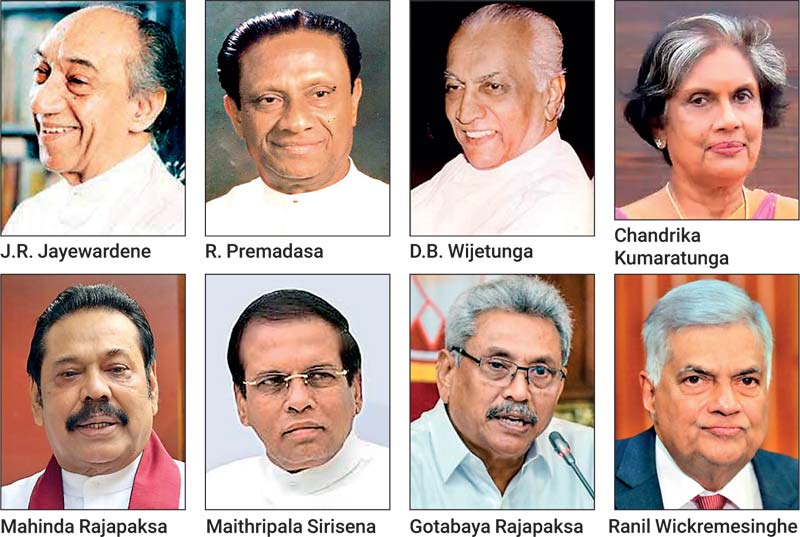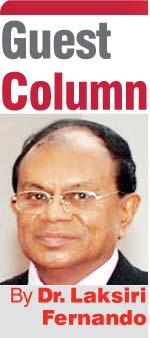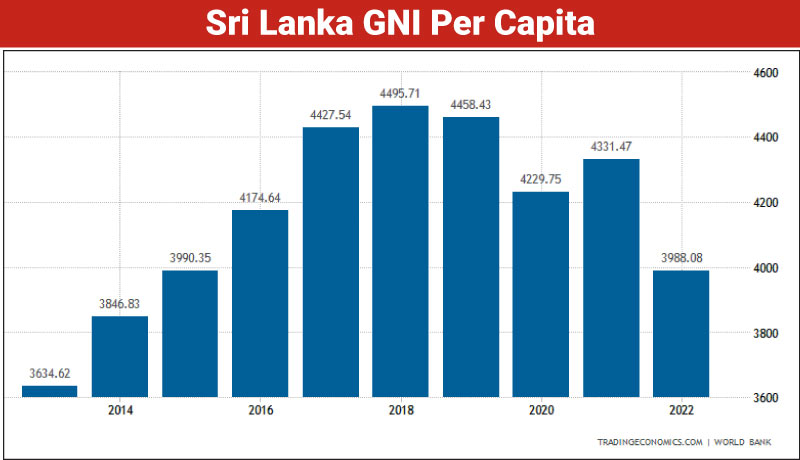Monday Feb 16, 2026
Monday Feb 16, 2026
Monday, 18 September 2023 00:01 - - {{hitsCtrl.values.hits}}

 The present President of Sri Lanka, Ranil Wickremesinghe, is undoubtedly a capable person compared to many other former Presidents in the country. Chandrika Kumaratunga could have been better, but the circumstances of the war prevented her achieving many of the socio-economic targets. In terms of modernising the country, J.R. Jayewardene played a pivotal role, but his political orientation led the country into an abysmal failure, particularly in terms of ethnic relations. I personally don’t believe that R. Premadasa played any positive role. Democracy in the country declined. Hopefully, Sajith Premadasa may be different.
The present President of Sri Lanka, Ranil Wickremesinghe, is undoubtedly a capable person compared to many other former Presidents in the country. Chandrika Kumaratunga could have been better, but the circumstances of the war prevented her achieving many of the socio-economic targets. In terms of modernising the country, J.R. Jayewardene played a pivotal role, but his political orientation led the country into an abysmal failure, particularly in terms of ethnic relations. I personally don’t believe that R. Premadasa played any positive role. Democracy in the country declined. Hopefully, Sajith Premadasa may be different.
Other predecessors
Mahinda Rajapaksa and his brother Gotabaya Rajapaksa were successful in defeating ‘terrorism’ in the country, but many of their measures were excessive and brutal. In dealing with the minorities, both ethnic and religious, their approaches were extremely ethno-nationalist and majoritarian. The roots of the Easter attacks were grounded in their policies and actions. It is possible that a person like Gotabaya was manipulating the events for political gain.
Many progressive thinking people and young generations kept much (or excessive) hope about the Yahapalana government in 2015. Some even characterised the change as a ‘revolution.’ But it was an utter failure both in economic policies and promoting or sustaining democracy. It could not prevent the Easter attacks having available all the information necessary. Who was responsible for these failures? Wickremesinghe or Maithripala Sirisena? Of course, Sirisena was primarily responsible as the President of the country at that time. He was the Head of Security and Defence.
I have known Sirisena for some years. He was always inclined to political manipulation. His knowledge about democracy or economics was abysmal. He was only a good talker in Sinhala. After an investigative commission found him responsible for the security neglect which led to the Easter attacks, he should have completely resigned from politics. Now, it appears that he is trying to completely destroy the SLFP, one of the important political parties in Sri Lanka. Compared to all these scoundrels, Wickremesinghe may appear talk worthy.
Vision and mission?
Presidential Secretariat’s website says the Vision of the President is to achieve “A Fully Developed Sri Lanka by the Year 2048.” This is utterly vague, and the period is long of 25 years. This can be a/the long-term vision. There is no definition of what does he means by ‘fully developed country?
Of course, the UN has a definition or calculation based on the World Bank. Gross National Income (GNI) per capita is the criteria. To be a developed country, Sri Lanka should achieve per capita GNI over $12, 615. Soon this criterion would be higher. But that is not the pressing problem at present. Since 2018, Sri Lanka’s GNI or GNP has been going downwards. The Rajapaksa regime used to boast that they achieved a lower middle-income country with per capita GNI reaching over $ 4,500 in 2018.
But since then, it was going down, during their own regime. This declining trend was even before the COVID pandemic. In 2020, it was $ 3,880, an 8% decline from 2019. Even in 2019, there was a 3% decline. This is not to deny the effects of the pandemic but to emphasise the other structural and functional reasons, most importantly loan dependency.
Without only having an ultimate vision, the President could have declared a short-term (2023-24), medium-term (2025-35), and long-term visions (2036-45). The vision of the country should not have targeted only the overall GNI, but the elimination of poverty and eradication of large income gaps in society. These are for social justice.
The next presidential election is scheduled to be held before September 2024. What is the vision of the President for that time in terms of country’s development? The following table shows Sri Lanka’s predicament in terms of conventional criteria. Last year the country went back to 2015 conditions. This year the predictions are the same or even lower.
Independent prediction for 2024 (supposed to be the election year) is also lower than $ 4,000 per capita GNI. The President should answer and explain the situation.
The Secretariat website declares President’s Mission as “To guide the State in the right direction to efficiently and effectively achieve the set goals and objectives for building a developed Sri Lanka.” Even in the Mission statement there are no social objectives. Although the Mission statement talks about ‘the set goals and objectives’ nowhere on the website these are spelled out.
Australian example
In Australia, although there is no one single vision or mission statement from the Prime Minister’s office or the Governor’s office, there are several vision, mission and value statements from various ministries, departments and offices including the Prime Minister’s office. Plurality appears to be the practice. They are not limited to one or two sentences. In addition to vision and mission, values are included in these statements.
Of course, Australia is a highly developed country in addition to its fairly developed democracy. In formulating these visions, missions and values, many agencies have conducted surveys and received public opinion. Many websites are open for people to express their viewpoints online. The Prime Minister’s Office also has a Corporate Plan and the present one is for 2023-24. Do we have Corporate Plans in Sri Lanka? I have never come across any.
A particular lesson Sri Lanka can obtain is from DEFAT (the Department of Foreign Affairs and Trade) in addition to the Australian Public Service (APS). DEFAT is also relevant to our foreign trade and efforts for development. It is one entity which emphasises values. The Value Statement is the following, in addition to extensive explanations. (DFAT values | Australian Government Department of Foreign Affairs and Trade)
“We uphold and promote the Australian Public Service Values: Impartial, Committed to service; Accountable; Respectful and Ethical. In addition, we place particular importance on the following agency values that define how we work and shape our culture.”
In addition to the President’s Secretariat, the lessons from DEFAT can undoubtedly be taken by the Ministry of Foreign Affairs and the Ministry of Commerce. Both these Ministries should take a major responsibility for the development of the country through export promotion, trade, and foreign relations. Australia can not only be an example, but a country which really can help Sri Lanka if genuine changes are undertaken in the country’s vision, mission, objectives, values, and working methods.
